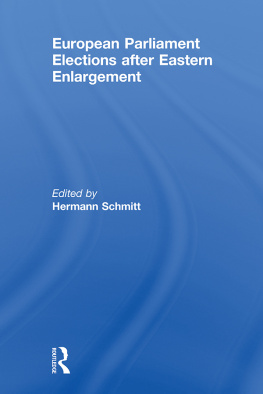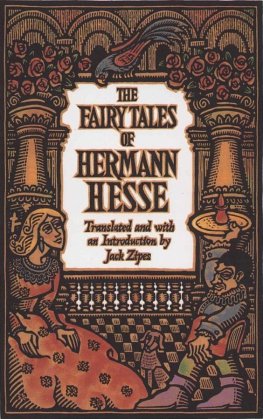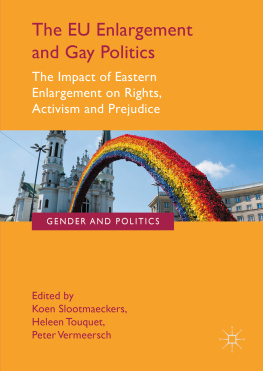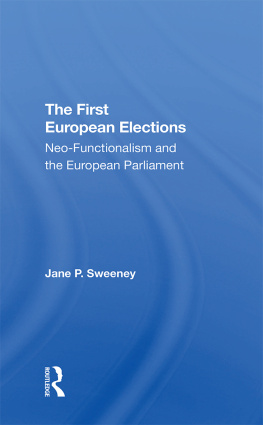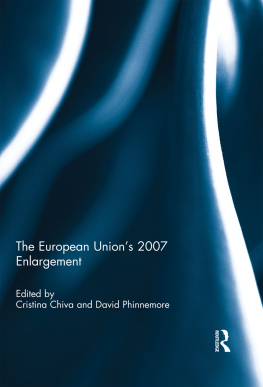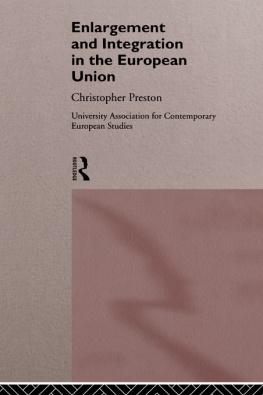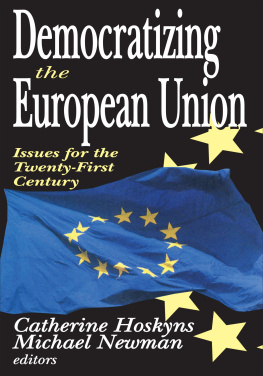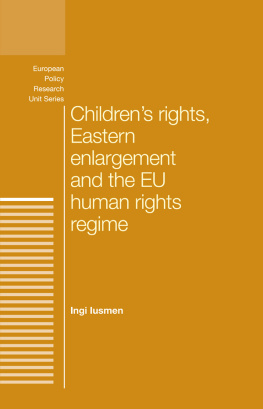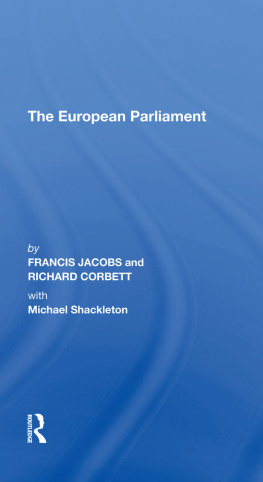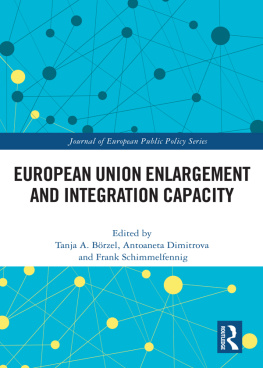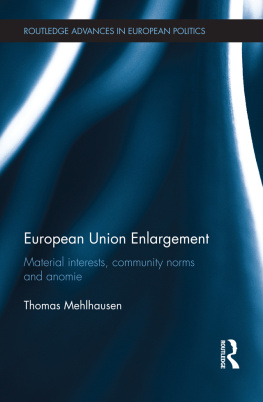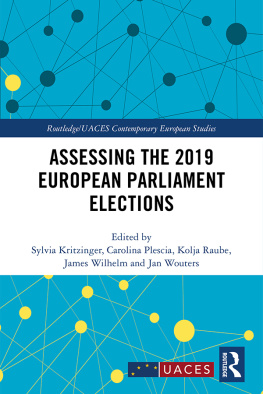European Parliament Elections after Eastern Enlargement
This book reflects on the questions raised by the European Election Study 2004 whose analytical focus was on the legitimacy of EU politics after Eastern enlargement. It also assesses the dynamics and the contents of the campaign, on the determinants of the extremely low turnout in the new countries, and on the reasons of voter choice in West and East.
The book also examines the first European Parliament election after the post-communist countries of Eastern Europe joined the European Union. The central question is: what has changed? Are the voters in the new member countries different and if so, why? Did the Union suffer from a loss of democratic legitimacy after Eastern enlargement?
Each chapter is empirical-analytical; most are based on the post-election surveys of the group that were conducted in all but one of the 25 member countries, others focus on the results of content analyses of news media and party manifestos.
This book was published as a special issue of the Journal of European Integration.
Hermann Schmitt is a research fellow of the MZES and a Privatdozent for Political Science at the University of Mannheim. He was a visiting professor at the University of Michigan (19967), Science Po Paris (20012), the Australian National University (2003), the IAS in Vienna (2005), and the UAM in Madrid (2008). He received his doctorate from the University of Duisburg, and his first habilitation from the Free University of Berlin. He has been participating in a number of comparative projects; perhaps most important is his involvement, from 1979 onwards, in the series of European Election Studies. He is the author and editor of numerous books and articles on electoral behaviour in multilevel-systems and on political parties and political representation in the EU.
European Parliament Elections after Eastern Enlargement
Edited by Hermann Schmitt
First published 2010 by Routledge
2 Park Square, Milton Park, Abingdon, Oxon, OX14 4RN
Simultaneously published in the USA and Canada
by Routledge
711 Third Avenue, New York, NY 10017
Routledge is an imprint of the Taylor & Francis Group, an informa business
First issued in paperback 2012
2010 Taylor & Francis
All rights reserved. No part of this book may be reprinted or reproduced or utilised in any form or by any electronic, mechanical, or other means, now known or hereafter invented, including photocopying and recording, or in any information storage or retrieval system, without permission in writing from the publishers.
British Library Cataloguing in Publication Data
A catalogue record for this book is available from the British Library
ISBN 13: 978-0-415-55675-0 (hbk)
ISBN 13: 978-0-415-50948-0 (pbk)
Introduction
Hermann Schmitt
MZES, University of Mannheim, Mannheim, Germany
ABSTRACT The present contribution to the scholarly knowledge about European Parliament (EP) elections essentially assembles analyses of the data of the 2004 European Election Study. Due to the very nature of large-scale cross-national comparative survey research, it will only be published shortly after the 2009 European Parliament election. As it would certainly be inadequate to ignore the fact that another European election took place just before publication, this introduction to the analyses that follow will start out with a first inspection of the results of this most recent European election the election of the members of the European Parliament in June 2009. The main question we will be asking is about the persistence of the second-order character of these elections: are the 2009 European Parliament election results in line with our expectations about European Parliament elections as second-order national elections as laid out originally by Reif and Schmitt (1980) and restated and refined in a large number of subsequent publications? The second part of this introduction will then go on and do what every introduction does: briefly present the contributions that follow.
The 2009 Election to the European Parliament: Still Second-Order?
European Parliament elections have been described as second-order national elections (SOEs). This judgement was inspired by the fact that the national political arena has been so much more important than that of the European Union at least in the early years of direct elections to the European Parliament. Under these circumstances, turnout was expected to be lower in SOEs; government parties were expected to lose votes in SOEs, and those losses were predicted to follow the national electoral cycle; small parties were expected to win and ideologically extreme or polar parties were also expected to win relative to their previous first-order election (FOE) result (Reif and Schmitt 1980). A re-examination of these aggregate predictions at the occasion of the 2004 EP election broadly confirmed them. The one major qualification to this conclusion was that things at the time worked out differently in the new Eastern member countries (Schmitt 2005). A tentative explanation of these deviant findings referred to the relative fluidity of the party and electoral systems in the post-communist democracies of Eastern Europe.
We are interested here in the second-order character of European Parliament elections five years later. Was turnout in the 2009 European Parliament elections again lower if compared to the previous national FOE in the respective country? Did government parties lose and was the magnitude of those possible losses governed by the relative position of an EP election in the national electoral cycle? And last but not least, did small parties and ideologically more extreme parties two qualities which go together quite regularly do systematically better in European Parliament elections?
Turnout was Lower
Turnout is expected to be lower in second-order elections generally, and in European Parliament elections in particular. One line of reasoning refers to the comparatively lower level of political mobilisation and stimulation (e.g. Campbell 1960). Specifically for EP elections, an alternative hypothesis has been proposed which stipulates that low turnout is a function of a lack of support for and legitimacy of the EU level of government (e.g. Blondel et al. 1998). While this second reasoning has found little empirical support so far (e.g. Van der Eijk and Schmitt 2009), it can not be ruled out as a matter of principle. A third plausible motivation for low turnout in SOE is dissatisfaction with ones last FOE vote choice (Schmitt et al. 2009). But we are not looking at the motivations of individual turnout decisions here this has to wait for future analyses due to the non-availability of survey data at the time of writing. What we can do instead is to compare aggregate turnout levels for national first-order elections with those for the EP election of 2009.
shows that turnout was again lower in the European Parliament election of June 2009 compared to the preceding national first-order election. Belgium and Luxembourg are the only two exceptions among the 27 member countries. There turnout is about at the same level as in national first-order elections. This is due to the Belgian system of compulsory voting and the fact that, in Luxembourg, European Parliament elections are held concurrently with national parliament elections.



